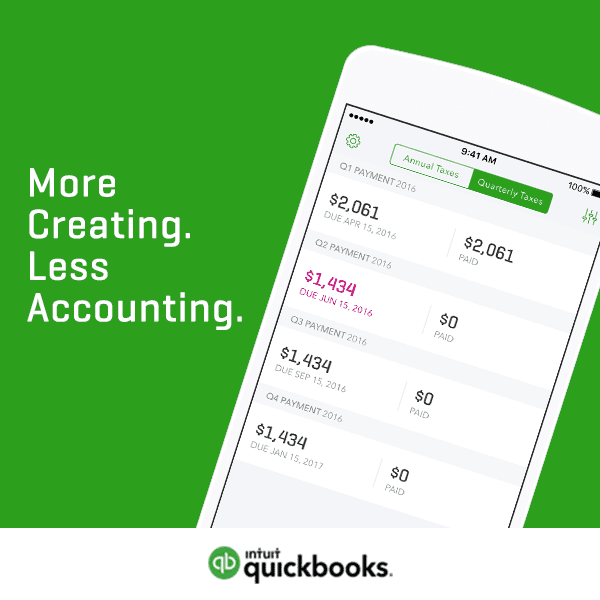Upskilling 101 (Definition, Examples, Implications)
by Doc Kane
Updated: February 21, 2022
The future of work is now, and that means we’ve got to be on our toes as we look toward it. Things we embrace as the norm now will change, and things we feel are new today will be outdated and gone before we get used to using them. I see this every day in sales and marketing tech, in education and in the medical aging care clients I help support. So what can we do about it? A primer on reskilling is just ahead.
Upskilling may be a term you’re hearing as of late, but you might not be so familiar with it’s meaning. Does it just meaning learning new skills? And, how might it apply to you? Over the next few years, we’re going to be hearing a lot about reskilling and how it relates to the stability of the job market, and jobs as we know them today. If you’re over the age of fifty as I am, or rapidly approaching that milestone, preparing yourself for the inevitability of your new role in the world of business is something you’ll want to be keenly aware of, as it will most certainly be affecting you. Perhaps, painfully so.
1. Is all this upskilling and reskilling stuff new?
Feel as though all this talk about a reskilling revolution, is nothing new? Well, you’d be mostly right. The need to adopt new essential skills, and close skills gaps is a concept that is everlasting. Speed here is the concern. Such changes often take place over decades, if not generalizations as societies have introduced various forms of automation and outsourcing, but these days, everything it seems is happening in tandem. Just ask the world economic forum. Or, an older aunt or uncle. Or, me.
If you’re still of working age, you’ve no doubt noticed the subtle changes that are about. Technology bring with it many gifts, but it also removes a number in it’s wake. Sometimes, more than we’d like. Myself, a kid who grew up in the seventies and eighties, I’m keenly aware of how what used to be the norm for me is so distant a memory, that some days I forget things I did were even things to do.
The same is happening in our work world as well, and we have tech to thank for the reskilling revolution we’re all living through at this very moment.. Automation and artificial intelligence are here to stay, and they will begin to replace jobs we needed to do manually and with our own brains at a clip that’ll be hard to discern in a few short years. This will be particularly painful for workers who’ve been entrenched in their careers for decades, so the time to plan is now. So…
What is Upskilling? What is Reskilling?
When one wants to stay in a single job, or a single career path, we tend to use the word upskilling. In contrast, when one wants to learn skills that will allow them to leave their current job, or current career path, then the term we tend to use is reskilling.
The trouble of course, is the only way to lock into either word is to be 100% sure of the learner’s intent. And, that is pretty much impossible. It’s also, given the nature of what we’re talking about here (unpredictability) something we just cannot know.
So, for the sake of argument, and just getting things down on paper, I’m going to blend the two and go with this definition for now: learning of new skills to either to help a person stay relevant in an expanding or new work role, or for a shift into a new career altogether.
Having a strategy that will help you close skill gaps and enhance future career paths for the next twenty years of your life will likely be critical to you if you foresee yourself wanting to work during that time. If you are younger than fifty, well… you’ve got a lot more runway to plan for, so don’t wait until you’re fifty to work on your skills development plan.
And, we’re not talking about just learning new job skills. We’re talking about taking online course, planning for career advancement opportunities you can’t yet see, taking your employer up on employee training opportunities, and yes, reading through training resources already at your disposal to acquire skills you don’t yet know you need.
What might this look like for you? What sort of skills gap might you need to close? Below are a few examples.
Upskilling and Reskilling Examples
Manufacturing
Learning entirely new skills like coding, or 3D printing, but it could also mean just learning about how to be more operationally efficient at work. Even focusing on lean sigma, or certifications aside acquiring the skills needed to help you improve efficiencies and strengthen soft skills like problem solving and interpersonal management.
Construction
Educating yourself as to movements in the virtual reality (VR) space would likely be wise, as would developing skillsets and knowledge about better building materials. Leed certification, for example could be a strong plus. Of course, learning how to design using CAD/CAM is often a good skill to pick up in this sector as well.
Healthcare
Surgeons can obviously train in robotic surgery, coding and in research programming languages like R. More soft skills are always a plus in the medical field, and aren’t always something the competition possesses. Also a familiarity with artificial intelligence, geriatric care (we’re all getting up there in age eventually), are all likely to be beneficial when it comes to adapting to the future of work in medical.
Transportation
Developing new skillsets involving autonomous vehicles and electric vehicles are obvious skills to consider given the current state of digital transformation occurring in the automotive and transportation industries, but so would urban design and drone tech.
Hospitality
In Japan, I teach part time at the YMCA Hotel College, and the students I teach seem to have no idea what’s coming their way. Robots already exist in hotels, and convenience stores are becoming ever less populated with humans, and with humans who need to interact with other humans on the whole. These days, most people I interact with at stores no longer even touch money. So: robotics, languages, management, interpersonal communication, economics, finance.
Education
Covid taught many of us in teaching a number of valuable lessons. Namely, know tech, and be very comfortable with it. Doing so helps teachers train for new positions, or for new roles in business… perhaps working as part of a training team at a company that wants people with a background in education and HR. By learning how to better plan and implement lessons, teachers can upskill and reskill themselves to benefit from the shifting dynamics we’re currently seeing in the education marketplace. Aside from curriculum design, and using online technologies, design tools, presentation tools and media creation in general are all ways teaching professionals can increase their demand in the marketplace both within the classroom, and within businesses.
Management
Speaking of management, developing skills outside your current area of interest that may help others in new jobs, could be useful in helping to reskill employees joining the ranks of your company. Picking up skills in finance, marketing, sales, operations, or other areas outside your proficiency could also be a good idea.
Design
Years ago my favorite and only designer at the SaaS company I worked at left. Not the company, but the profession. He did it by teaching himself python on at night and on the weekend, and now he works as a data scientist at that same dental software company. Skills designers can leverage to reskill elsewhere would obviously include technology. Already good with these sorts of skills, designers are in a natural position to seque into different areas by taking online courses, or by shadowing other internal employees. Working with someone already doing what you want to do is a great way to get nearly unlimited access to an in-house mentor. Designers? Ready to close that skills gap? Or, stick with design all together and upskill with design theory and design practice.
Truck drivers
In a word: safety. In two words: collision prevention.
Learning to work with automated technology on board a vehicle will make you stand out more than anything, and have you standing up more than anything as well. In short time, truck driving will sadly move from one of the most unique and (for me at least) long intriguing career paths to one we’ll just talk about as something that “used to happen.”
Most people feel as though this transition to automated long haul trucking is off in the distant future… it’s not. City infrastructure and an aging population that is resisting the change (that’s you and me) will be the big hold up to this eventual transition, but it’s going to happen. And when we’re all too old to complain anymore, our grandchildren will make it happen. And, for many of us, our grandchildren are soon to arrive.
Electrictians
Safety and troubleshooting are great skill-sets to develop if you don’t already possess them, and their transferable to other trades as well. Learning how to use safety equipment, getting certified, or joining a reskilling program offered by the local union, or your employer could provide you with the skills you need to move up and out of being an electrician, or out of the trades altogether. Acquiring programming and computer-aided manufacturing training can enhance your development on the job and after hours program involvement can turn you into the sort of talent no employer (or contractor) will want to pass on.
Marketing and Sales
Marketing and sales professionals should be looking to upskill and reskill in areas that are tangential to their natural skill sets. Machine learning and AI are two important skillsets for individual employees to begin thinking about. Each of these skills allow you to stand out among the best talent in an organization, if not an industry.
Taking up such skills also affords you the ability to trade on new skills to take on new tasks at a much faster clip, giving you greater access to workforce benefits you can’t possibly imagine at this point.
Consulting opportunities for one, will begin to pop up as your knowledge in these areas increase, and as you create new connections at organizations working in these sectors.
As marketers its easy to get distracted by new tools, and overwhelmed by new resources, so it’s important to set clear goals as to what you want to accomplish. Join coding teams online, make skills development an important part of your day. Learn digital marketing and get good at digital marketing. Pen and paper is your friend and mine, but the computer certainly gets and will command even more of our attention as we age.
Or… perhaps less.
Maybe with all this new technology on at our doorstep and on the horizon, what we really need to learn is how to respond quickly to the needs of the cow in our backyard, or the chickens in the barn.
What skills you need now depends all on where you see yourself in five, ten, fifteen, twenty years.
Me? I see myself on the farm. Baking. With a pen, paper, and.. a computer.
By 2025, the future of work will be in a state of disruption much greater than anything we have seen to date. This future will have us continuously learning, upskilling and reskilling in order to remain relevant to future jobs.
It’s said that 65% of all jobs in existence today will be replaced by automation, although I’m not so certain about this claim. Certainly many future jobs do not even exist and it’ll be up to us to prepare for that eventuality.

About Me
Howdy, all, I'm Doc. I live in the beautiful port city of Kobe, JAPAN with my wife Reiko. Together we co-founded the Japanese literature translation firm, Maplopo. Nihon Hustle grew out of my desire to help others interested in working with, or starting, a business Japan—or anywhere else in the world!
We all wear different hats and my job is to help you find the one that fits you best. Thanks for reading, and go get 'em!


